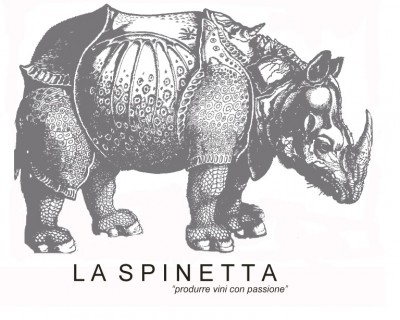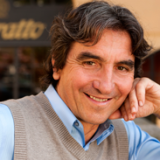La Spinetta
About La Spinetta

La Spinetta was founded in 1977 and now spans 165 hectares between Piedmont and Tuscany. Instead of inheriting their land through generations of winemakers, the Rivettis have carefully selected their vineyards over time. All sites have a south, south-east or south-west exposure and the vines tend to have a bit of age (35-65 years). The approach in the winery may be modern but the vineyard ethos is utterly traditional: extensive year round care, extremely low yields and no use of chemical fertilisers, herbicides or pesticides. La Spinetta means “top of the hill” and refers to the location of their first cellar in Castagnole delle Lanze in Piedmont. La Spinetta’s motto is: “Making wine with passion”. We’ll drink to that.
“Year after year Giorgio Rivetti’s Piedmont winery has earned a fame that has made it a leading ambassador of Langhe wine throughout the world, and the labels with the rhinoceros are present in the finest restaurants on all continents.” – Gambero Rosso
About Giorgio Rivetti

Giorgio Rivetti began studying viticulture and oenology at the Scuola Enologica di Alba — one of Italy’s oldest wine schools — at the age of 16. Before long he was serving an apprenticeship in both Burgundy and Bordeaux. When he returned to the family home in Piedmont, he set to work alongside his father, Giuseppe, who’d launched La Spinetta in 1977 and quickly gained a reputation for his Moscato d’Asti.
It was Giorgio who led the family’s charge into red wines when he made a Barbera d’Asti in 1985. Many other reds quickly followed, and global recognition wasn’t far behind. By 2000, La Spinetta’s line-up included about 15 single-vineyard wines from Piedmont. The family’s desire to keep pushing boundaries took them to Tuscany, followed by the acquisition of Italy’s oldest traditional-method sparkling wine producer, Contratto, which also makes traditional Italian bitters.
Giorgio works by the principle that 90% of a wine is made in the vineyard, and considers himself a traditionalist. He works with no herbicides or other chemicals and regards the use of barriques and rotofermenters not as instruments for making modern wine but for preserving the quality of the juice produced by the vineyards.

